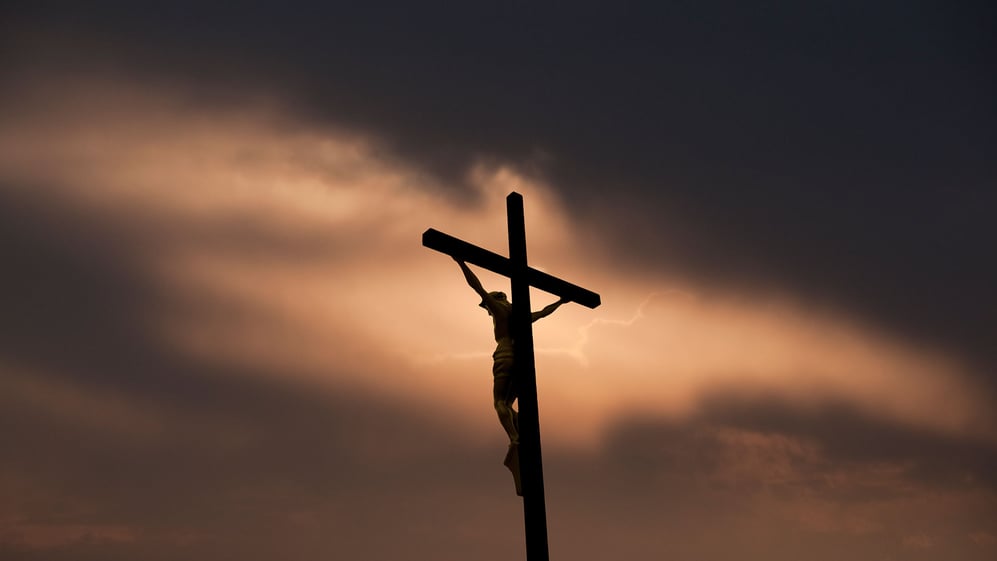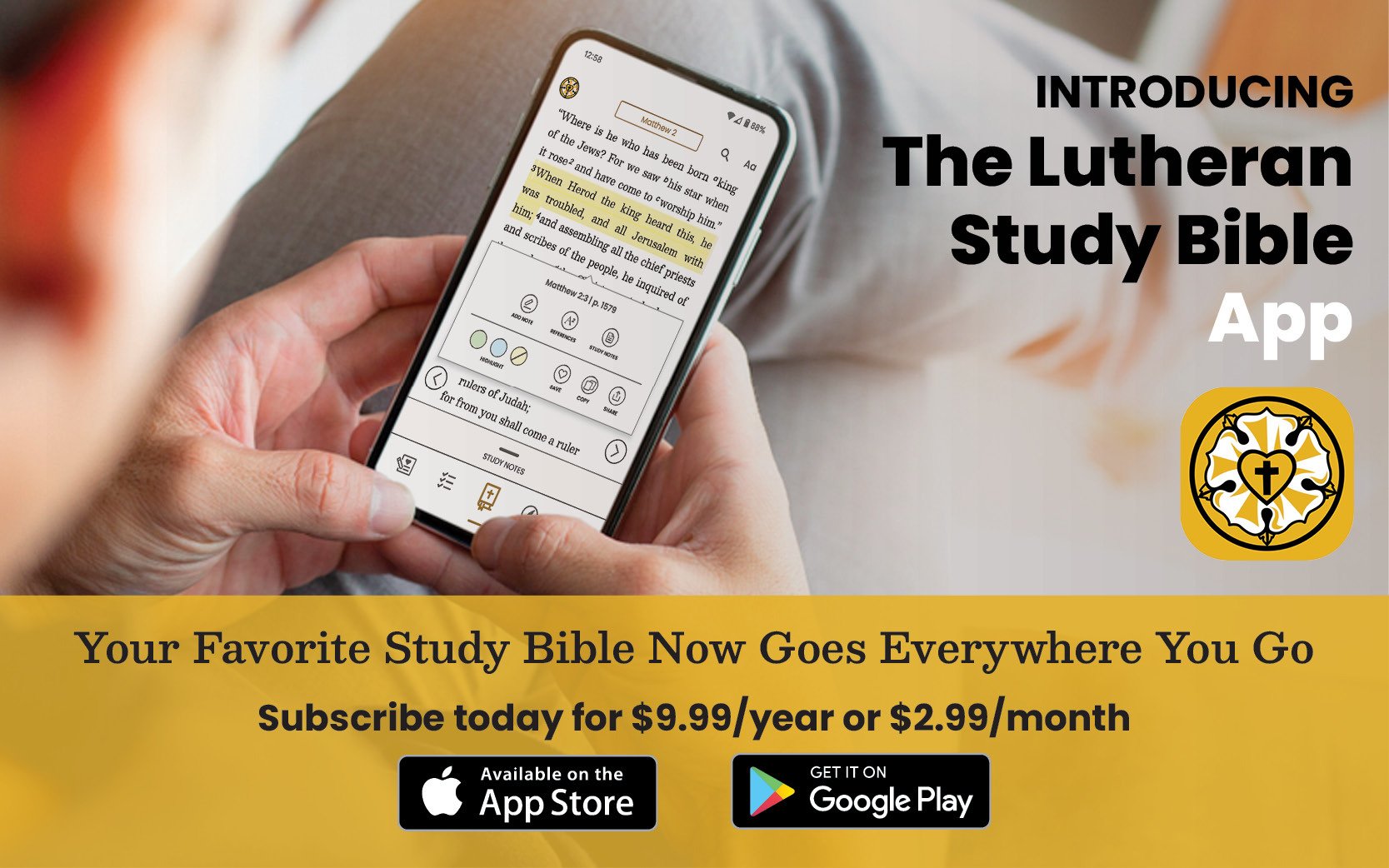Psalm 22 has one of the most memorable opening lines, “My God, My God, why have You forsaken Me?” These words are instilled into our memories as the words Jesus spoke from the cross. Psalm 22 is appropriately one of the two psalms appointed for Good Friday in both the three-year and one-year lectionaries (along with Psalm 31).
However, in his commentary on Psalm 22 from Psalms 1–50, Tim Saleska shows us how Psalm 22 points beyond Good Friday: “In the NT, we hear again words from the first half of Psalm 22 in the narrative of Jesus’ passion and crucifixion. But we also hear words from the second half of this psalm in the mouths of Jesus and his saints after his resurrection.”1
Psalm 22 indeed connects to Good Friday, but what other connections to the life and work of Jesus are present in Psalm 22? Let’s walk through this psalm and see what we find.
Psalm 22:1–2: Starting at the Cross
Verse 1 draws our attention to Good Friday and the hours Jesus spent on the cross. Matthew 27:46 and Mark 15:34 record Jesus quoting the beginning of Psalm 22:1:
My God, My God, why have You forsaken me?
Likewise, although verse 2 is not quoted or alluded to in the Gospel accounts, its tone fits with verse 1:
O My God, I cry by day, but You do not answer, and by night, but I find no rest.
As Jesus hangs on the cross, day and night collide. There is light from 9 a.m. to 12 p.m. (the third to the sixth hour; see Mark 15:25, 33). Then there is darkness from 12 p.m. to 3 p.m. (the sixth hour to the ninth hour; see Mark 15:33). Though it is supposed to be day, there is darkness and night as Jesus cries out to His heavenly Father at the ninth hour (Mark 15:34).
Psalm 22:3–5: Remembering Holy Thursday
As we reach verses 3–5, we are pointed back a day in the Holy Week timeline. David writes in verse 4, “In You our fathers trusted; they trusted, and You delivered them.” Such words are reflective of the sentiments of the Passover. God’s people had trusted in the Lord for deliverance from Egypt and the house of slavery. They cried out to the Lord. He rescued them.
Psalm 22:6–18: Back to Good Friday
As we move on to verses 6–18, we find more connections to Jesus’ crucifixion. Many of these verses are quoted or alluded to in the Passion narratives of the four Gospels.
In verse 7, David writes, “All who see Me mock Me; they make mouths at Me; they wag their heads.” Jesus is mocked by many onlookers, including soldiers, chief priests, and random members of the crowds. Such mocking is seen in Matthew 27:39: “And those who passed by derided Him, wagging their heads” (see also Mark 15:29 and Luke 23:35–36).
In verse 8, David specifies the mocking with these words spoken against him: “He trusts in the LORD; let Him deliver Him; let Him rescue Him, for He delights in Him!” We see Matthew record this of the chief priests who were present at Jesus’ crucifixion: “So also the chief priests, with the scribes and elders, mocked Him, saying, . . . ‘He trusts in God; let God deliver Him now, if He desires Him. For He said, ‘I am the Son of God’ ” (Matthew 27:41–43; see also Mark 15:31; Luke 23:35).
Verse 16 says, “They have pierced My hands and feet.” This seems like an obvious thing for the Gospel writers to pick up on, seeing as crucifixion often involved the piercing of hands and feet to affix the condemned to the cross. However, it does not seem to be mentioned by the Gospel writers except in Jesus’ resurrection account in John 20:24–27, where Thomas demands to place his fingers in the nail marks in Jesus’ hands before he will believe—and Jesus complies. We see another hint in Colossians 2:14: “By canceling the record of debt that stood against us with its legal demands. This He set aside, nailing it to the cross.”
Verse 18 is another clear connection to Good Friday. David writes, “They divide My garments among them, and for My clothing they cast lots.” Matthew, Mark, and Luke each reference this occurrence, but John makes the connection most clearly, writing:
When the soldiers had crucified Jesus, they took His garments and divided them into four parts, one part for each soldier; also His tunic. But the tunic was seamless, woven in one piece from top to bottom, so they said to one another, “Let us not tear it, but cast lots for it to see whose it shall be.” This was to fulfill the Scripture which says, “They divided My garments among them, and for My clothing they cast lots.” (John 19:23-24; see also Matthew 27:35; Mark 15:24; Luke 23:34)
Psalm 22:19–21: Holy Saturday
Throughout Psalm 22, there is a back-and-forth between first and second person (“I” and “you”). As we transition from verse 18 to 19, we see one of these changes. In verse 19, we return to a sense of hopefulness that was alluded to in verses 3–5 and verses 9–11. Yet the turn in verses 19–21 seems different because there is no return to pain and anguish. Although the previous hopeful sections focused on what God had done in the past for others and for David, this section is a present cry for help that turns to an answered prayer in verse 21: “Save Me from the mouth of the lion! You have rescued Me from the horns of the wild oxen!”
I would argue that verses 19–21 fit well with Holy Saturday, the day Jesus rests in the tomb. God is not far off. God comes quickly to aid Jesus. The reference to a lion in verse 21 I find particularly intriguing, as one of the readings for Holy Saturday is Daniel 6:1–24, the story of Daniel in the lions’ den.
Psalm 22:22–31: Easter, Pentecost, and Beyond
Saleska points to verse 22 in connection with John 20:17.2 David writes, “I will tell of Your name to My brothers.” Meanwhile, Jesus says to Mary Magdalene, “Do not cling to Me, for I have not yet ascended to the Father; but go to My brothers and say to them, ‘I am ascending to My Father and your Father, to My God and your God.’ ” We also see “My brothers” come up in a similar resurrection appearance in Matthew 28:10. The author of Hebrews even attributes Psalm 22:22 to Jesus in Hebrews 2:12.
Verses 27 and 28 also draw us to resurrection appearances. David writes, “All the ends of the earth shall remember and turn to the LORD, and all the families of the nations shall worship before You. For kingship belongs to the LORD, and He rules over the nations.”
One hears echoes of this in the words of Jesus in Matthew 28:18–19:
All authority in heaven and on earth has been given to Me. Go therefore and make disciples of all nations.
And Acts 1:8:
But you will receive power when the Holy Spirit has come upon you, and you will be My witnesses in Jerusalem and in all Judea and Samaria, and to the end of the earth.
We can also see a Pentecost connection here. Not only does Jesus send His disciples to the ends of the earth, to all nations as witnesses of His resurrection, but also on Pentecost the nations are gathered in Jerusalem and hear the Word of the Lord spoken to them miraculously in their own languages. They remember and turn to the Lord, worshiping Him and being baptized (see Acts 2:37–41).
Finally, Saleska also points to two passages in Revelation that echo the words of Psalm 22. Revelation 11:15 echoes Psalm 22:28, and Revelation 19:5 echoes Psalm 22:23.3
In all these things, we see that Psalm 22 is indeed a great psalm to be prayed and meditated upon for Holy Week. However, its conclusion makes Psalm 22 applicable and poignant in Easter, Pentecost, and beyond. We continue to praise God and tell of His name to our brothers and sisters, knowing that He will deliver us from all of the anguish of Psalm 22 and into all the joys of Psalm 22.
1 Timothy E. Saleska, Psalms 1–50, Concordia Commentary (St. Louis: Concordia Publishing House, 2020), 407.
2 Ibid.
3 Ibid.
Study the Psalms by ordering the Concordia Commentary below.













